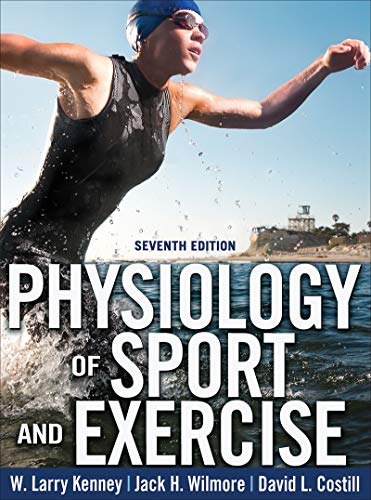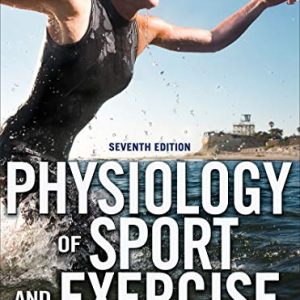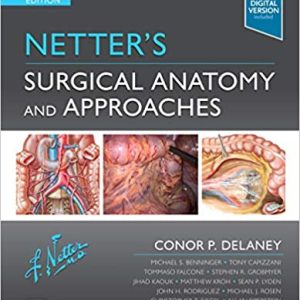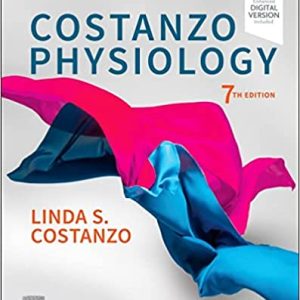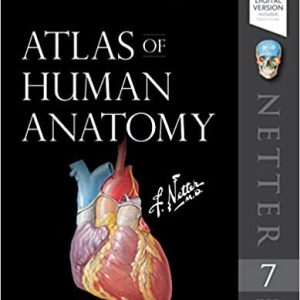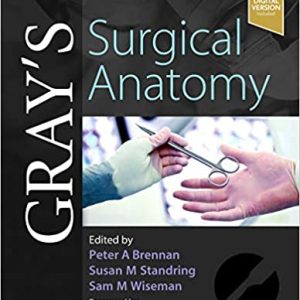Physiology of Sport and Exercise 7th Edition Seventh ed
Physiology of Sport and Exercise 7th Edition Seventh ed by W. Larry Kenney (Author), Jack H. Wilmore (Author), David L. Costill (Author)
- Publisher : Human Kinetics; Seventh edition (May 1, 2019)
- Language : English
- FORMAT EPUB + CONVERTED PDF + AUDIOS + VIDEOS
- ISBN-10 : 1492572292
- ISBN-13 : 978-1492572299
$10.99
Physiology of Sport and Exercise, Seventh Edition PDF , continues its legacy as a top physiology textbook and favorite of instructors and students alike. Combining research with extensive visual aids, this resource offers a simple way for students to develop an understanding of the body’s abilities to perform various types and intensities of exercise and sport, to adapt to stressful situations, and to improve its physiological capacities.
Written by a team of distinguished researchers, all past presidents of the American College of Sports Medicine, this seventh edition has been updated based on the most recent position stands, standards, and guidelines in the field of sport and exercise physiology. Throughout the text, updated photos join with the superb illustrations and medical artwork to clarify difficult concepts and illustrate how the body performs. Digital components found in the web study guide now include 26 animations that offer a dynamic way to experience physiological concepts, and 66 audio clips that provide explanations of complex physiological processes to aid students’ understanding of important illustrations in the text. Leaders in the field discuss recent developments and real-world applications in 27 video clips to help students connect theoretical and practical concepts. Corresponding icons throughout the text notify students when digital elements are available to complement the materials.
In addition to the expanded digital components, Physiology of Sport and Exercise, Seventh Edition, features new and updated content based on the latest research in the field:
- Additional information on overtraining and exercise addiction
- Expanded content on fatigue and mobility in aging
- New sections on epigenetics, bioinformatics, and neuromuscular function
- New information on exercise genomics
- New Research Perspectives emphasizing emerging findings in the field, and a new Research Perspectives Finder to help students locate key content quickly
Ease of reading has been the standout feature of this popular text. The seventh edition continues to offer comprehensive coverage of the complex relationship between human physiology and exercise while maintaining an engaging and student-friendly tone. Unique learning features paired with an accessible layout, including chapter-opening outlines and review boxes throughout each chapter, will help students focus on the major concepts addressed. Study questions and a list of key terms at the end of the chapter increase students’ opportunities for recall and self-testing. A comprehensive glossary and lists of common abbreviations and conversions provide easy reference for students as they complete labs and assignments.
About the Author
W. Larry Kenney, PhD, is the Marie Underhill Noll Chair in Human Performance and a professor of physiology and kinesiology at Pennsylvania State University at University Park. He received his PhD in physiology from Penn State in 1983. Working at Noll Laboratory, Kenney is researching the effects of aging and disease states such as hypertension on the control of blood flow to human skin and has been continuously funded by NIH since 1983. He also studies the effects of heat, cold, and dehydration on various aspects of health, exercise, and athletic performance as well as the biophysics of heat exchange between humans and the environment. He is the author of more than 200 papers, books, book chapters, and other publications.
Kenney was president of the American College of Sports Medicine from 2003 to 2004. He is a fellow of the American College of Sports Medicine and is active in the American Physiological Society.
For his service to the university and his field, Kenney was awarded Penn State University’s Faculty Scholar Medal, the Evan G. and Helen G. Pattishall Distinguished Research Achievement Award, and the Pauline Schmitt Russell Distinguished Research Career Award. He was awarded the American College of Sports Medicine’s New Investigator Award in 1987 and the Citation Award in 2008.
Kenney has been a member of the editorial and advisory boards for several journals, including Medicine and Science in Sports and Exercise, Current Sports Medicine Reports (inaugural board member), Exercise and Sport Sciences Reviews, Journal of Applied Physiology, Human Performance, Fitness Management, and ACSM’s Health & Fitness Journal (inaugural board member). He is also an active grant reviewer for the National Institutes of Health and many other organizations. He and his wife, Patti, have three children, all of whom are or were Division 1 college athletes.
Jack H. Wilmore, PhD, retired in 2003 from Texas A&M University as a distinguished professor in the department of health and kinesiology. From 1985 to 1997, Wilmore was chair of the department of kinesiology and health education and the Margie Gurley Seay endowed centennial professor at the University of Texas at Austin. Before that, he served on the faculties at the University of Arizona, the University of California, and Ithaca College. Wilmore earned his PhD in physical education from the University of Oregon in 1966.
Wilmore published 53 chapters, more than 320 peer-reviewed research papers, and 15 books on exercise physiology. He was one of five principal investigators for the HERITAGE Family Study, a large multicenter clinical trial investigating the possible genetic basis for the variability in the responses of physiological measures and risk factors for cardiovascular disease and type 2 diabetes to endurance exercise training. Wilmore’s research interests included determining the role of exercise in the prevention and control of both obesity and coronary heart disease, determining the mechanisms accounting for alterations in physiological function with training and detraining, and factors limiting the performance of elite athletes.
A former president of the American College of Sports Medicine, Wilmore received the American College of Sports Medicine’s Honor Award in 2006. In addition to serving as chair for many ACSM organizational committees, Wilmore was on the United States Olympic Committee’s Sports Medicine Council and chaired their Research Committee. He was a member of the American Physiological Society and a fellow and former president of the American Academy of Kinesiology and Physical Education. Wilmore consulted for several professional sport teams, the California Highway Patrol, the President’s Council on Physical Fitness and Sports, NASA, and the U.S. Air Force. He also served on editorial boards of several journals.
Wilmore passed away during the preparation of the sixth edition of this text.
David L. Costill, PhD, is the Emeritus John and Janice Fisher Chair in Exercise Science at Ball State University in Muncie, Indiana. He established the Ball State University Human Performance Laboratory in 1966 and served as its director for more than 32 years.
Costill has written and coauthored more than 430 publications over the course of his career, including six books and articles in both peer-reviewed and lay publications. He was the original editor in chief of the International Journal of Sports Medicine for 12 years. Between 1971 and 1998, he averaged 25 U.S. and international lecture trips each year. He was president of the ACSM from 1976 to 1977, a member of its board of trustees for 12 years, and a recipient of ACSM Citation and Honor Awards. He has received numerous other honors, including an honorary doctoral degree from the Stockholm School of Physical Education, the Professional Achievement Award from Ohio State University, the President’s Award at Ball State University, and the Distinguished Alumni Award from Cuyahoga Falls Public Schools. Many of his former students are now leaders in the fields of exercise physiology, medicine, and science.
Costill received his PhD in physical education and physiology from Ohio State University in 1965. He and his wife of 58 years, Judy, have two daughters. Now retired, Dr. Costill is a private pilot, auto and experimental airplane builder, competitive masters swimmer, and former marathon runner.
About the Author
W. Larry Kenney, PhD, is the Marie Underhill Noll Chair in Human Performance and a professor of physiology and kinesiology at Pennsylvania State University at University Park. He received his PhD in physiology from Penn State in 1983. Working at Noll Laboratory, Kenney is researching the effects of aging and disease states such as hypertension on the control of blood flow to human skin and has been continuously funded by NIH since 1983. He also studies the effects of heat, cold, and dehydration on various aspects of health, exercise, and athletic performance as well as the biophysics of heat exchange between humans and the environment. He is the author of more than 200 papers, books, book chapters, and other publications.
Kenney was president of the American College of Sports Medicine from 2003 to 2004. He is a fellow of the American College of Sports Medicine and is active in the American Physiological Society.
For his service to the university and his field, Kenney was awarded Penn State University’s Faculty Scholar Medal, the Evan G. and Helen G. Pattishall Distinguished Research Achievement Award, and the Pauline Schmitt Russell Distinguished Research Career Award. He was awarded the American College of Sports Medicine’s New Investigator Award in 1987 and the Citation Award in 2008.
Kenney has been a member of the editorial and advisory boards for several journals, including Medicine and Science in Sports and Exercise, Current Sports Medicine Reports (inaugural board member), Exercise and Sport Sciences Reviews, Journal of Applied Physiology, Human Performance, Fitness Management, and ACSM’s Health & Fitness Journal (inaugural board member). He is also an active grant reviewer for the National Institutes of Health and many other organizations. He and his wife, Patti, have three children, all of whom are or were Division 1 college athletes.
Jack H. Wilmore, PhD, retired in 2003 from Texas A&M University as a distinguished professor in the department of health and kinesiology. From 1985 to 1997, Wilmore was chair of the department of kinesiology and health education and the Margie Gurley Seay endowed centennial professor at the University of Texas at Austin. Before that, he served on the faculties at the University of Arizona, the University of California, and Ithaca College. Wilmore earned his PhD in physical education from the University of Oregon in 1966.
Wilmore published 53 chapters, more than 320 peer-reviewed research papers, and 15 books on exercise physiology. He was one of five principal investigators for the HERITAGE Family Study, a large multicenter clinical trial investigating the possible genetic basis for the variability in the responses of physiological measures and risk factors for cardiovascular disease and type 2 diabetes to endurance exercise training. Wilmore’s research interests included determining the role of exercise in the prevention and control of both obesity and coronary heart disease, determining the mechanisms accounting for alterations in physiological function with training and detraining, and factors limiting the performance of elite athletes.
A former president of the American College of Sports Medicine, Wilmore received the American College of Sports Medicine’s Honor Award in 2006. In addition to serving as chair for many ACSM organizational committees, Wilmore was on the United States Olympic Committee’s Sports Medicine Council and chaired their Research Committee. He was a member of the American Physiological Society and a fellow and former president of the American Academy of Kinesiology and Physical Education. Wilmore consulted for several professional sport teams, the California Highway Patrol, the President’s Council on Physical Fitness and Sports, NASA, and the U.S. Air Force. He also served on editorial boards of several journals.
Wilmore passed away during the preparation of the sixth edition of this text.
David L. Costill, PhD, is the Emeritus John and Janice Fisher Chair in Exercise Science at Ball State University in Muncie, Indiana. He established the Ball State University Human Performance Laboratory in 1966 and served as its director for more than 32 years.
Costill has written and coauthored more than 430 publications over the course of his career, including six books and articles in both peer-reviewed and lay publications. He was the original editor in chief of the International Journal of Sports Medicine for 12 years. Between 1971 and 1998, he averaged 25 U.S. and international lecture trips each year. He was president of the ACSM from 1976 to 1977, a member of its board of trustees for 12 years, and a recipient of ACSM Citation and Honor Awards. He has received numerous other honors, including an honorary doctoral degree from the Stockholm School of Physical Education, the Professional Achievement Award from Ohio State University, the President’s Award at Ball State University, and the Distinguished Alumni Award from Cuyahoga Falls Public Schools. Many of his former students are now leaders in the fields of exercise physiology, medicine, and science.
Costill received his PhD in physical education and physiology from Ohio State University in 1965. He and his wife of 58 years, Judy, have two daughters. Now retired, Dr. Costill is a private pilot, auto and experimental airplane builder, competitive masters swimmer, and former marathon runner.
Showing 1–12 of 916 resultsSorted by latest
-
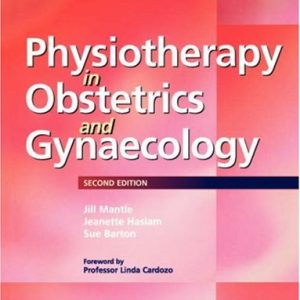
Physiotherapy in Obstetrics and Gynaecology 2nd Edition
$7.99 Add to basket -
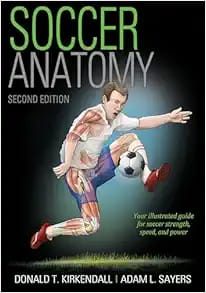
Soccer Anatomy Second Edition
$7.99 Add to basket -
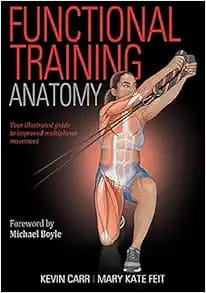
Functional Training Anatomy First Edition
$7.99 Add to basket -
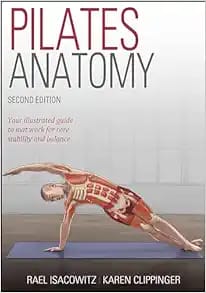
Pilates Anatomy Second Edition
$7.99 Add to basket -
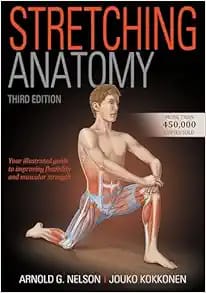
Stretching Anatomy Third Edition
$7.99 Add to basket -
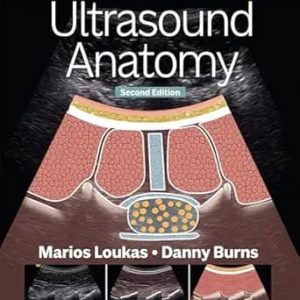
Essential Ultrasound Anatomy Second Edition
$17.99 Add to basket -
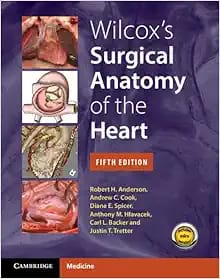
Wilcox’s Surgical Anatomy of the Heart Fifth Edition
$16.99 Add to basket -
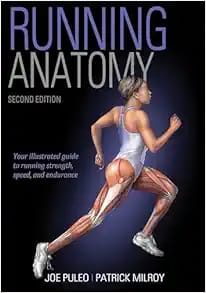
Running Anatomy Second Edition
$7.99 Add to basket -
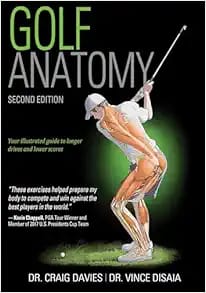
Golf Anatomy Second Edition
$7.99 Add to basket -
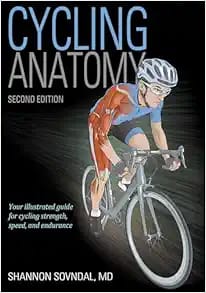
Cycling Anatomy Second Edition
$7.99 Add to basket -

The Complete Guide to Yoga Props First Edition
$10.99 Add to basket -

From Anatomy to Function of the Central Nervous System Clinical and Neurosurgical Applications First Edition
$14.99 Add to basket

